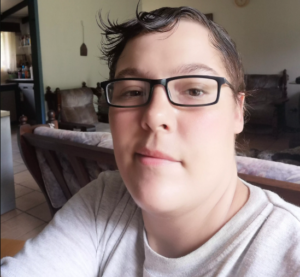Start your journey towards a certified accounting career by studying ICB accredited bookkeeping courses in South Africa. The Institute of Certified Bookkeepers (ICB) is an independent exam body that provides recognised qualifications. This gives you the opportunity to gain finance skills from anywhere in the country. Once completed, you will achieve a recognised qualification.
Bookkeeping Courses Online South Africa
You can study ICB bookkeeping courses online in South Africa via distance learning. Whether you live in Northern Cape or Gauteng, you will be able to study with us. This gives everyone an equal opportunity to learn quality skills and knowledge. The benefits of studying ICB bookkeeping courses in South Africa via distance learning are listed below:
- Study from anywhere in South Africa.
- There are no classes.
- Create your own study schedule.
- Save on travel and student accommodation costs.
- You will get all your learning material delivered to you.
- Get support from our student support team.
- Study with your fellow students digitally in online study groups.
- Enjoy academic help from our skilled tutors.
Colleges That Offer ICB Courses
There a three top distance learning colleges that offer ICB courses:
You will be able to enjoy all the benefits of studying ICB bookkeeping courses while you study from the comfort of your home.
How To Study Bookkeeping Courses?
There are three ways by which you can study ICB accredited bookkeeping courses in South Africa:
- Full-time
- Part-time
- Distance learning
Full-time Bookkeeping Courses
You can study ICB bookkeeping courses face-to-face at an accredited college in South Africa. You need to attend class each day on campus and follow a timetable. The college will take care of all administrative activities, such as entering an ICB exam.
Part-time Bookkeeping Courses
When you study part-time, you can work and study at the same time. This is an excellent choice for students that has full-time jobs but want to enhance their financial skills. You will have enough time to focus on your responsibilities and your coursework.
Distance Learning Bookkeeping Courses
Learn from anywhere at any time when you study ICB bookkeeping courses via distance learning. This includes students from small towns to large cities. There are no classes, so you can study right at home. You control your studies and future.
Free Bookkeeping Courses in South Africa
There are free bookkeeping courses in South Africa. But quite often, they do not award students with recognised certificates. Some bookkeeping courses also claim to be free but have hidden costs you need to cover.
Choose Our Bookkeeping Courses
When you study our ICB Bookkeeping Courses, we will provide flexible payment plans that will help you achieve your recognised qualification. We are also registered with the Department of Higher Education and Training (DHET).

How Do I Become A Certified Bookkeeper In South Africa?
From work experience to becoming a member of an esteemed organisation, take a look at how to become a certified bookkeeper in South Africa:
- Study a bookkeeping course
- Gain work experience
- Join a professional organisation
Study A Bookkeeping Course
The number one way to get certified as a bookkeeper in South Africa is by studying our Bookkeeping Courses. You will achieve a recognised certificate that will help you get employed and start your accounting career.
Gain Work Experience
After getting your certificate; you need to gain work experience to put your skills into practice. This will help you develop your knowledge and learn practical workplace skills too. You also stand a better chance of getting promoted to higher positions with more work experience.
Join A Professional Organisation
ICB graduates can join professional organisations that will help them get a designation. You can add this title to your CV to prove that you have formal training in your field. A professional body also trains and provides networking opportunities to its members.
Download a Brochure
Complete the form below and we will contact you as soon as possible.
Get a Call Back
Complete the form below and we will contact you as soon as possible.
ICB Bookkeeping Courses
There are two accredited bookkeeping courses you can study from anywhere in South Africa with us:
Junior Bookkeeper Course
Take the first step with our Junior Bookkeeper Course. This first level will give you an introduction to bookkeeping. It is a great way to learn practical skills that you will use daily, such as:
- Business English Skills
- Bookkeeping To Trial Balance
- Calculating Tax
- Computerised Bookkeeping
- Microsoft Word
- Business literacy and numeracy
Senior Bookkeeping Course
Our Senior Bookkeeping Course follows the Junior Bookkeeper Course. It builds on the skills you have learnt in the first course while teaching you new knowledge, such as the following:
- Managing financial statements
- Accounting concepts
- Cost and management accounting
ICB Bookkeeping Entry Requirements
You need to be able to read, write and understand English to enrol in our Bookkeeping Courses. You should also meet the following entry requirements:
| Course | Entry Requirements |
| Junior Bookkeeper Course | Grade 10 certificate |
| Senior Bookkeeping Course | Successful completion of the Junior Bookkeeper Course |
How Much Does It Cost To Study Bookkeeping In South Africa?
The cost of bookkeeping courses differs between colleges. You can find the course fees 2023 for our ICB Bookkeeping Courses below:
Registration Fee
| Annual student registration fee | R430 |
Exam Fees
| Assessment fees for PoE | R785 |
| Assessment postponement fee per subject | R330 |
| Assessment late entry fee per subject | R560 |
| Assessment re-mark and examiners report fee | R1200 |
| Private invigilator admin fee | R2100 |
| ICB programme certificate reprint | R400 |
| FASSET certificate reprint | R400 |
| Workplace PoE assessment (Learnerships) | R1450 |
Recognition Of Prior Learning (RPL) Fees
| RPL/Exemption application fee | R510 |
| RPL/Exemption fee per subject (no PoE required) | R430 |
| RPL/Exemption PoE fee per subject (with PoE) | R995 |

Which Bookkeeping Certification Is Best?
Our ICB Bookkeeping Courses are the best study programmes. It will help you learn a wide range of skills that will help you enter the job market with confidence. You can also progress to our national diploma accounting courses after completing both bookkeeping courses:
- Technical Financial Accounting National Diploma Course
- Certified Financial Accounting National Diploma Course
After completing all four accounting courses, you will achieve your Financial Accounting NQF Level 6 qualification.
Are ICB Qualifications Recognised?
Yes, all ICB qualifications are recognised. Each ICB course is locally and internationally recognised by employers and various organisations. This gives you the opportunity to enter local and global job markets.
What NQF Level Is ICB?
Our ICB Courses range from National Qualifications Framework (NQF) level three to six. The higher the level of your course, the higher the level on the NQF rating will be:
Accounting Courses
| Course | NQF Level |
| Junior Bookkeeper Course | NQF L3 |
| Senior Bookkeeping Course | NQF L4 |
| Technical Financial Accounting Course | NQF L5 |
| Certified Financial Accounting Course | NQF L6 |
Business Management Courses
| Course | NQF Level |
| Small Business Financial Management Course | NQF L4 |
| Office Admin Business Management Course | NQF L5 |
| Business Management Financial Accounting Course | NQF L6 |
Office Administration Courses
| Course | NQF Level |
| Junior Office Administration Course | NQF L5 |
| Higher Certificate Office Administration Course | NQF L5 |
| Office Administration Diploma Course | NQF L6 |
Is ICB Accredited By SAQA?
Yes, ICB is accredited by the South African Qualifications Authority (SAQA). The SAQA sets the NQF standards which our ICB Courses meet. This ensures that the course you study is accredited and the qualification is recognised.
Does Unisa Recognise ICB Qualifications?
Not quite, Unisa allows ICB graduates to study with them through recognition of prior learning (RPL). This means that if you completed a relevant qualification or work experience, you could use it as credits to further your studies at Unisa.
Please note: Studying further at Unisa with your ICB qualification is not guaranteed. But you always have the opportunity to complete your ICB stream or study further with:




Skills Academy is the word support in every way.
















Frequently Asked Questions
Yes, bookkeepers are in-demand in South Africa. There are a number of career opportunities available for certified bookkeepers in the country. With a recognised bookkeeping qualification, you can learn the scarce skills that will help you start your financial career.
The best way to become an accredited bookkeeper is to study our accredited bookkeeping courses. This will help you become qualified in your field.
No, the National Student Financial Aid Scheme (NSFAS) does not fund ICB courses. NSFAS only provides financial assistance to students studying at public colleges and universities. To fund your ICB course, you can:
- Apply for a student loan at the bank.
- Get a side job to pay for your course.
- Work part-time and pay for your own studies.
- Get private funding.
No, you cannot study directly through ICB, since it is not a college but an assessment provider. When you want to study ICB courses, you must study with an ICB training provider.
An ICB training provider is an accredited college that offers ICB courses. There are over 500 institutions to choose from in South Africa. With them, you can choose to study through:
- Classroom-based learning
- Distance learning
Benefits Of Studying With An ICB Training Provider
There a plenty of benefits of studying with an ICB training provider, such as Skills Academy:
- Get all your learning material delivered by reliable courier services throughout South Africa.
- Excellent academic help from our tutors, lecturers and student support team.
- A graduation ceremony to celebrate the successful completion of your studies.
Yes, you can get a job with an ICB certificate. Recruiters want to hire employees with a recognised certificate, such as an ICB qualification. Add it to your CV and cover letter, and you will soon land a job that can lead to the start of your career. Jobs you can get include:
- Bookkeepers
- Accountants
- Small Business Managers
- Office Administrators
- Personal Assistants

